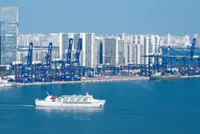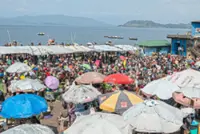AT a Niamey market, mother of five Rakia Abdou haggles hard for a sack of rice, a staple out of reach for many in Niger due to record inflation.
“The prices of local food are falling but those for imported products are still high,” she said at the Wadata market, lightly coated in dust carried by the wind of west Africa’s Harmattan dry season.





